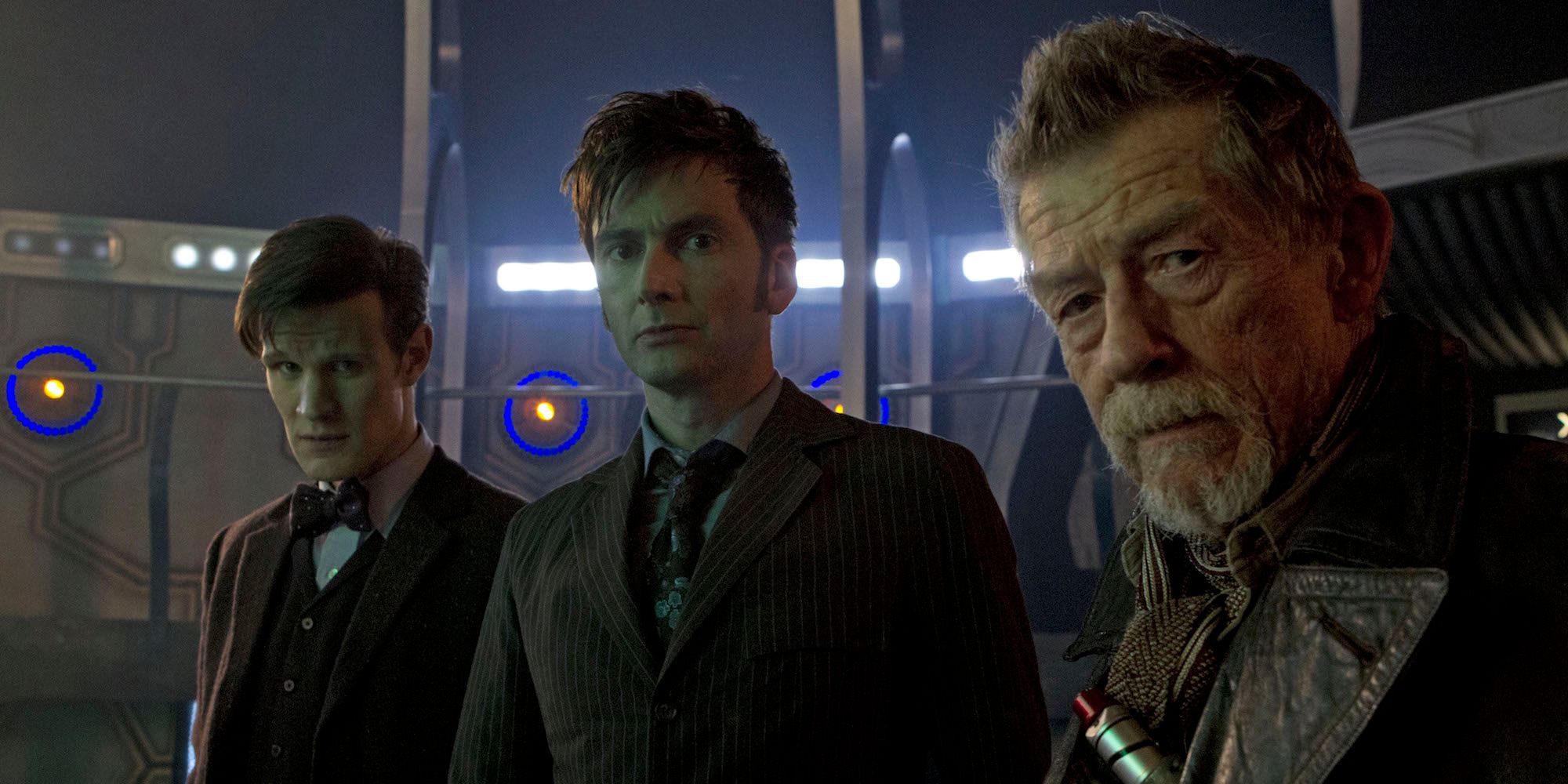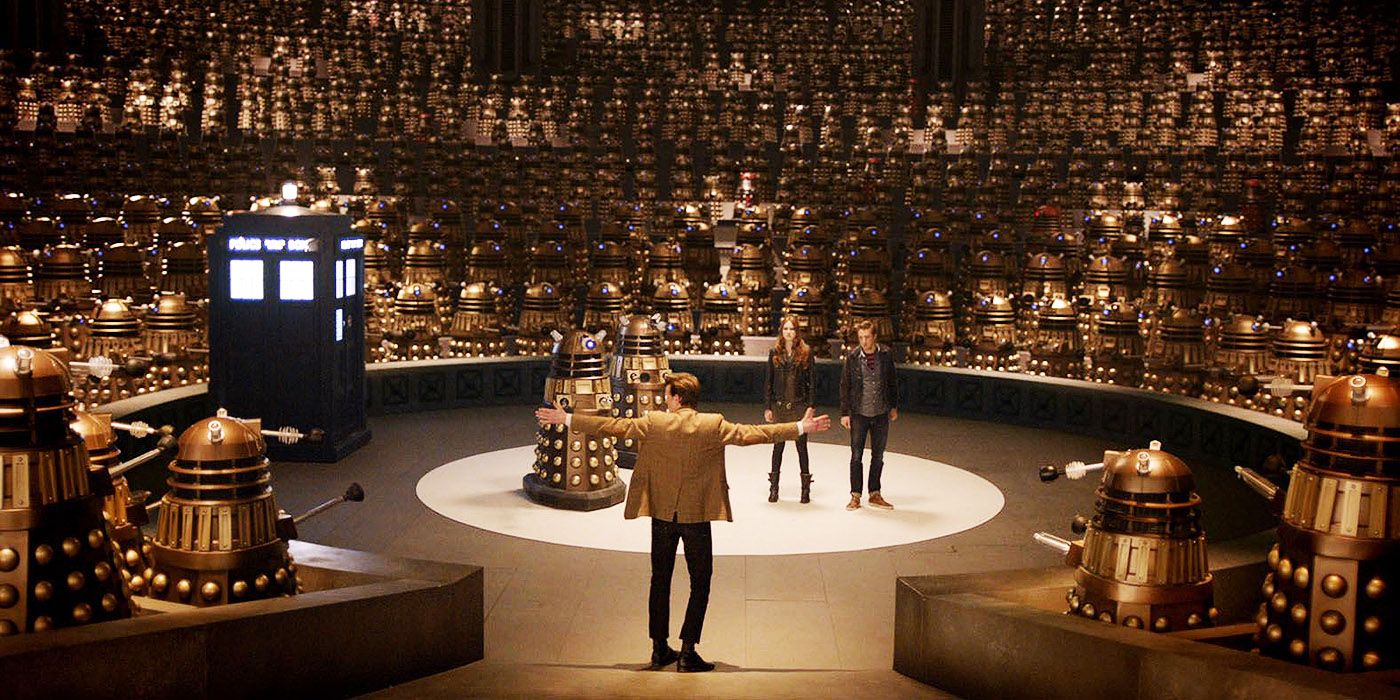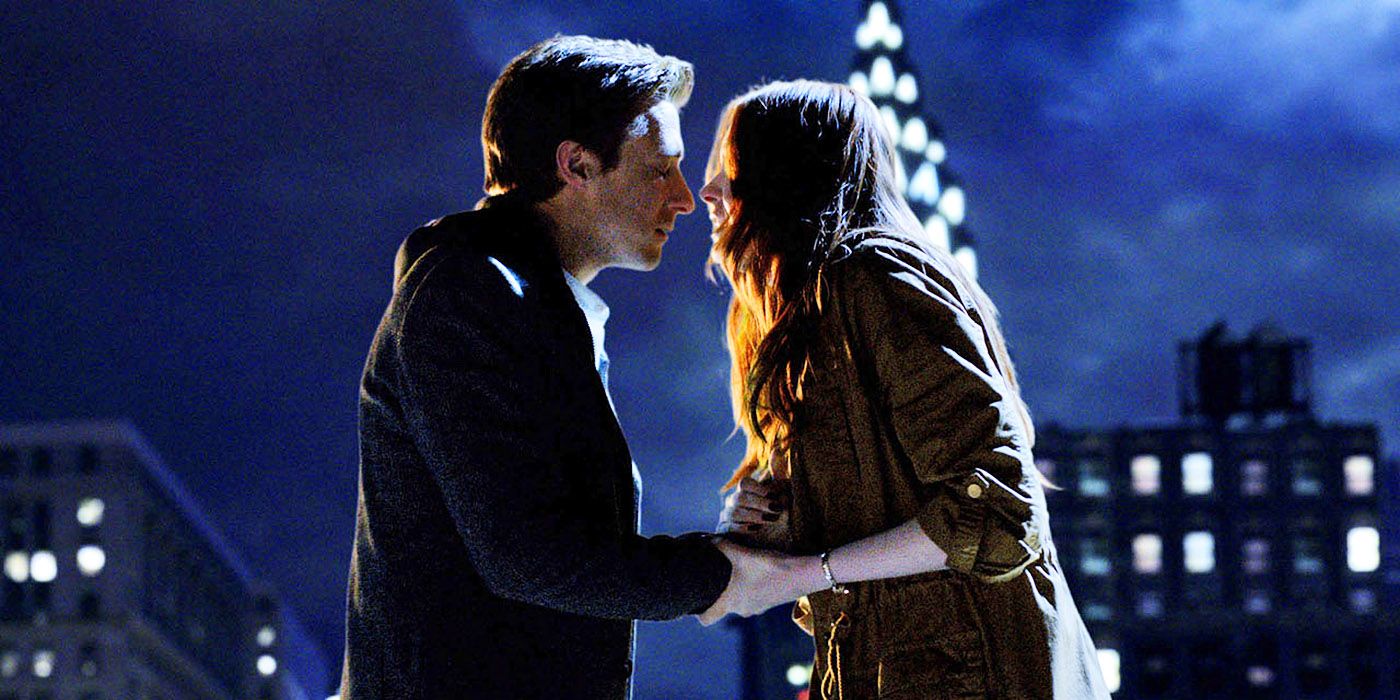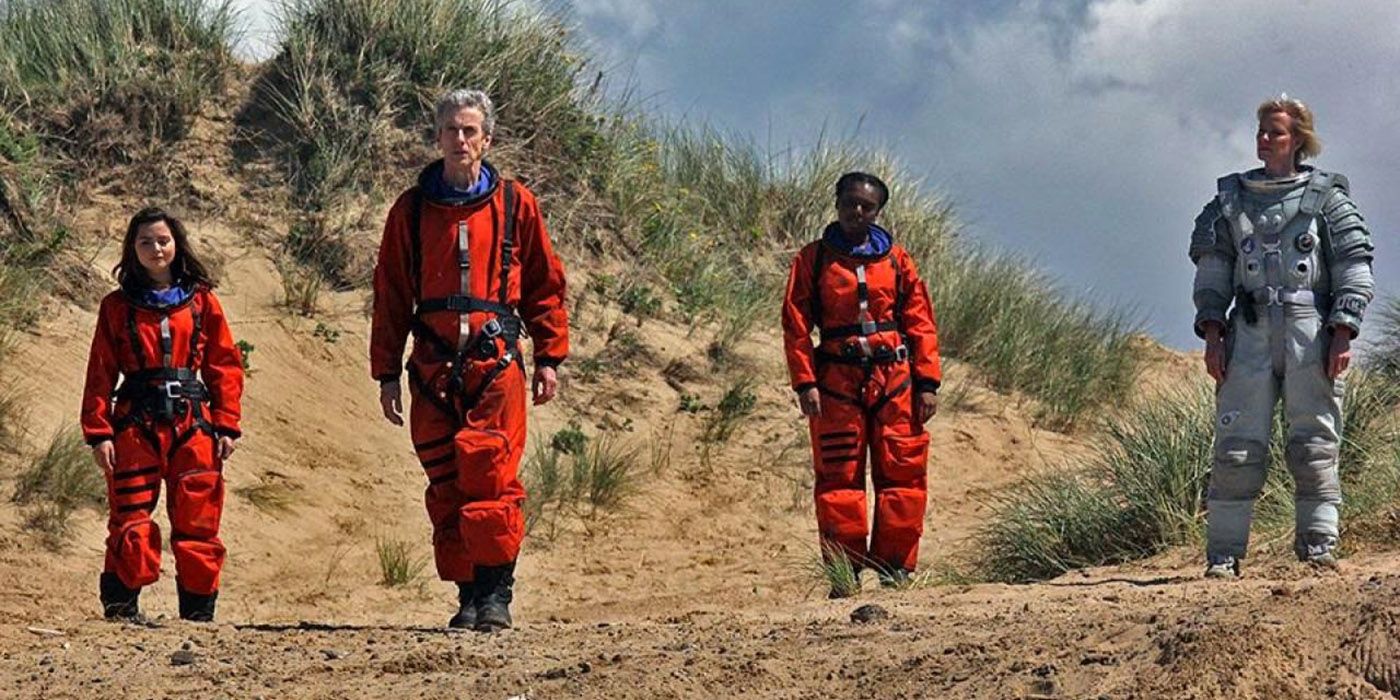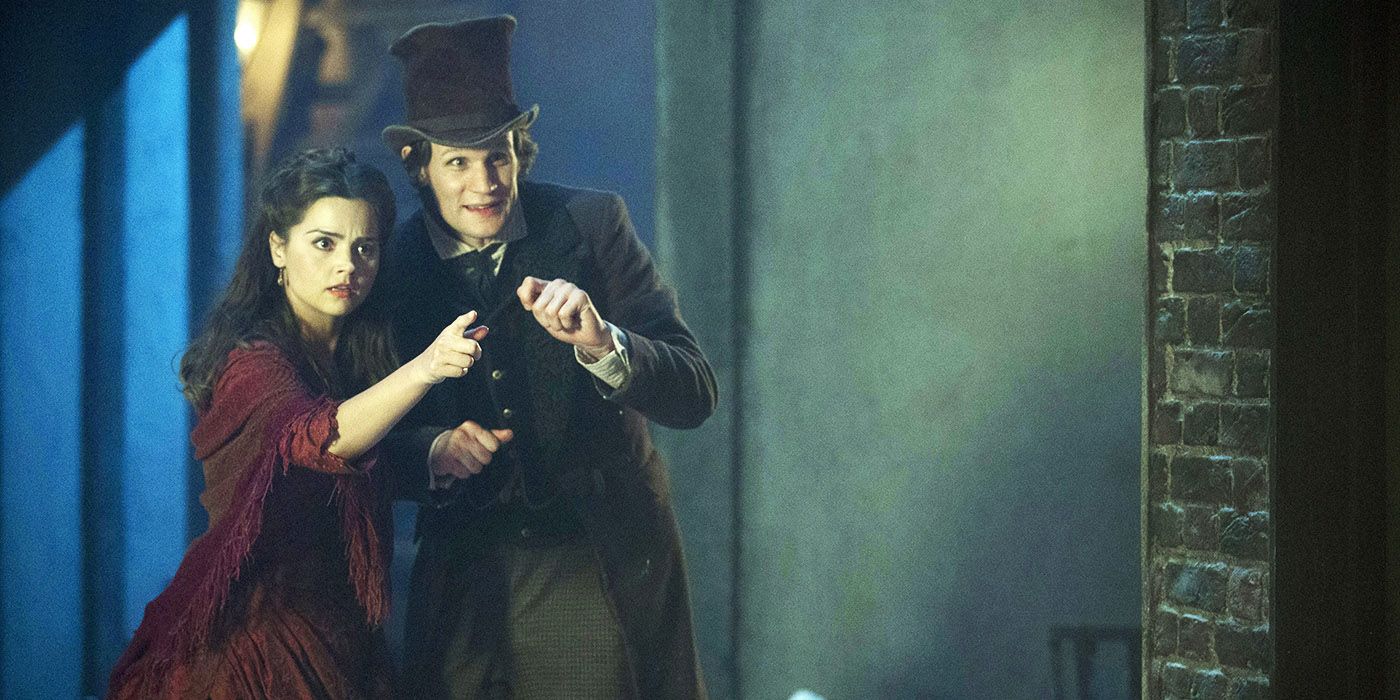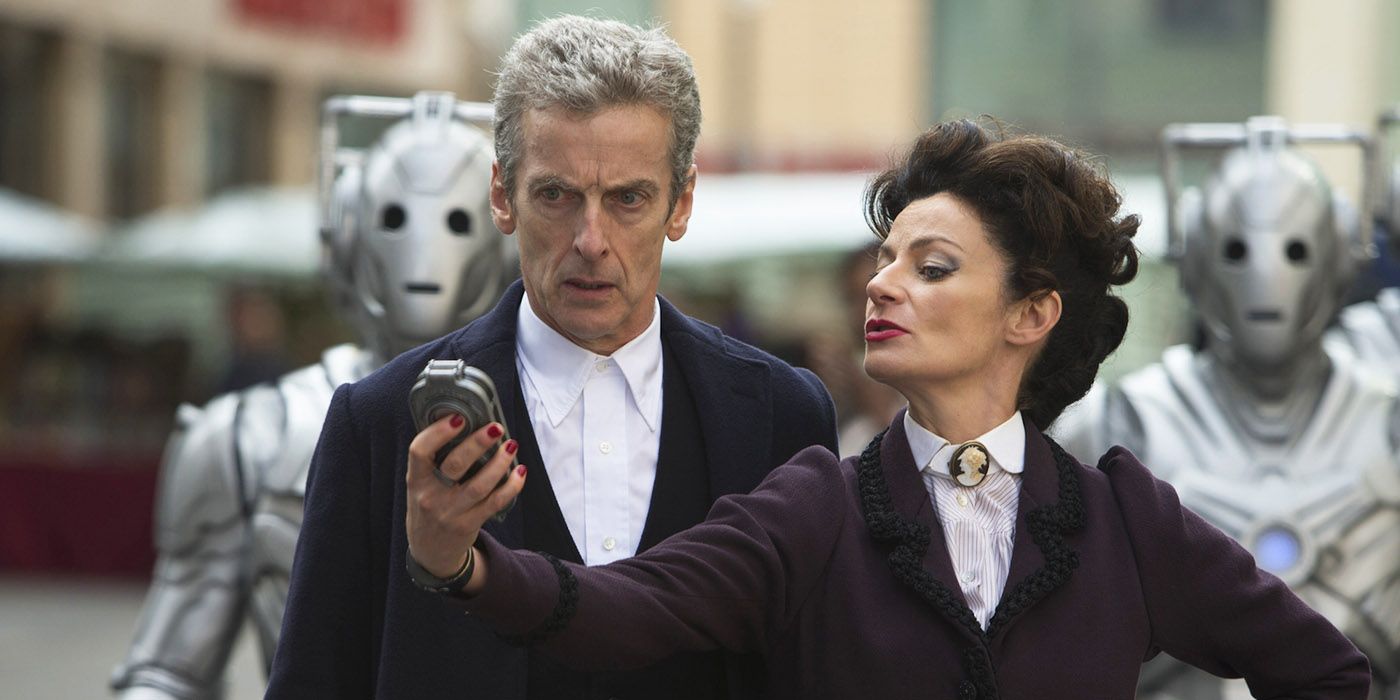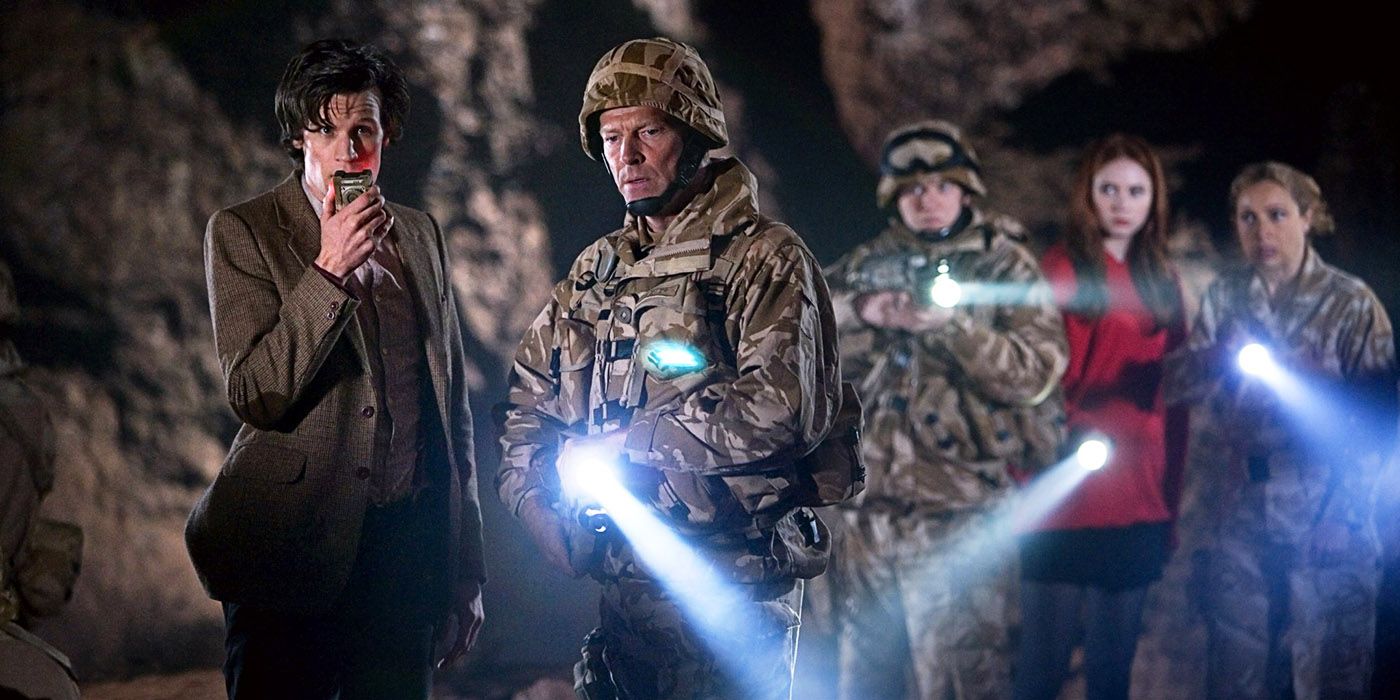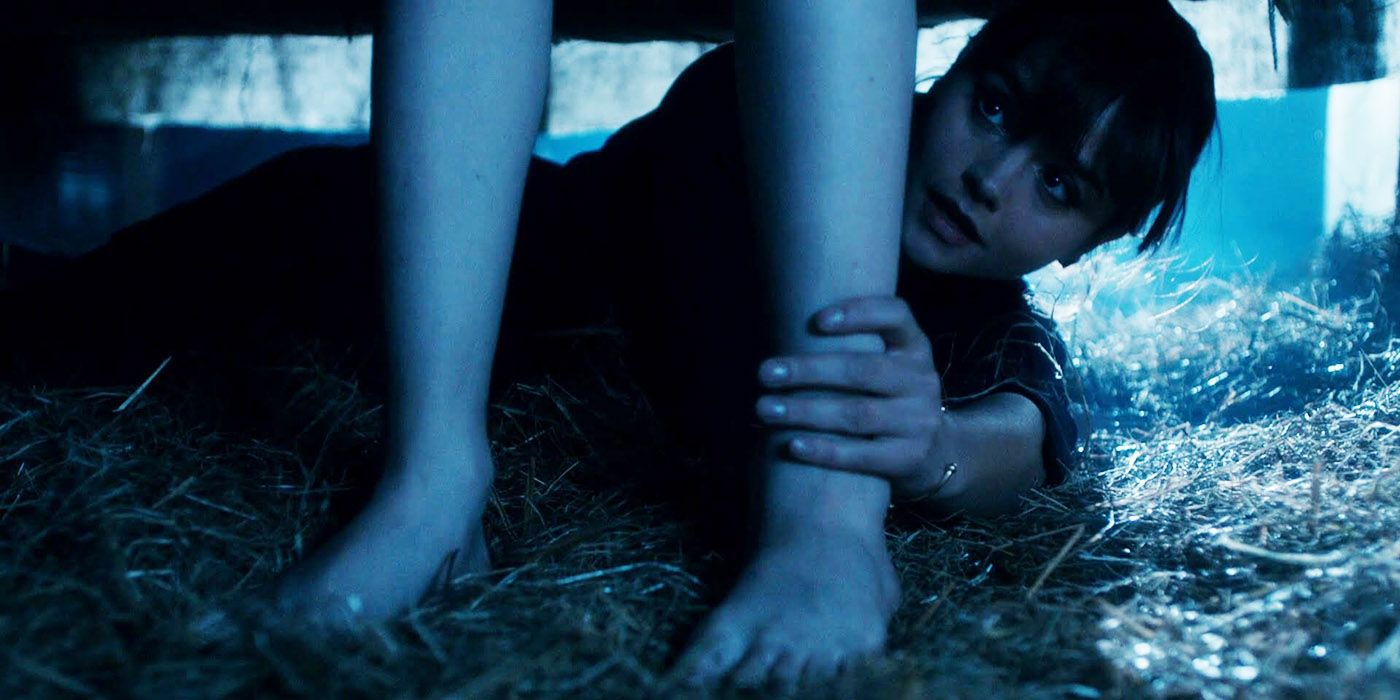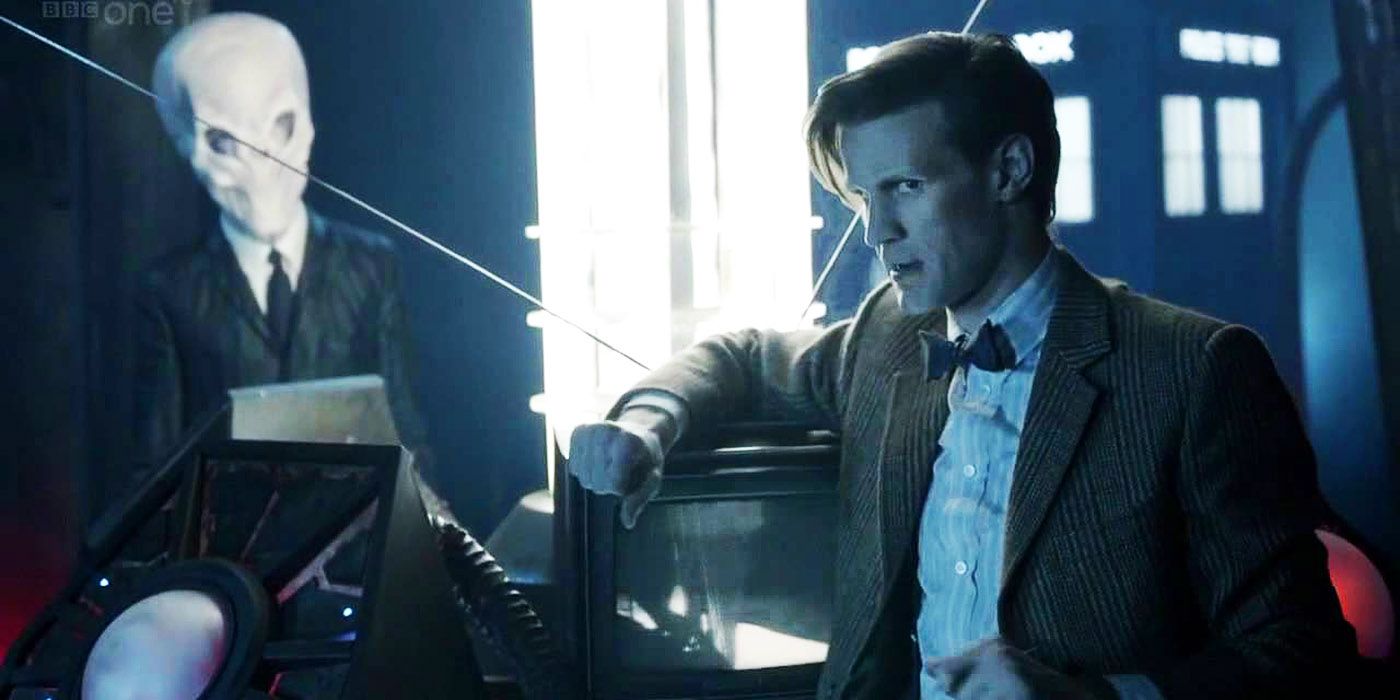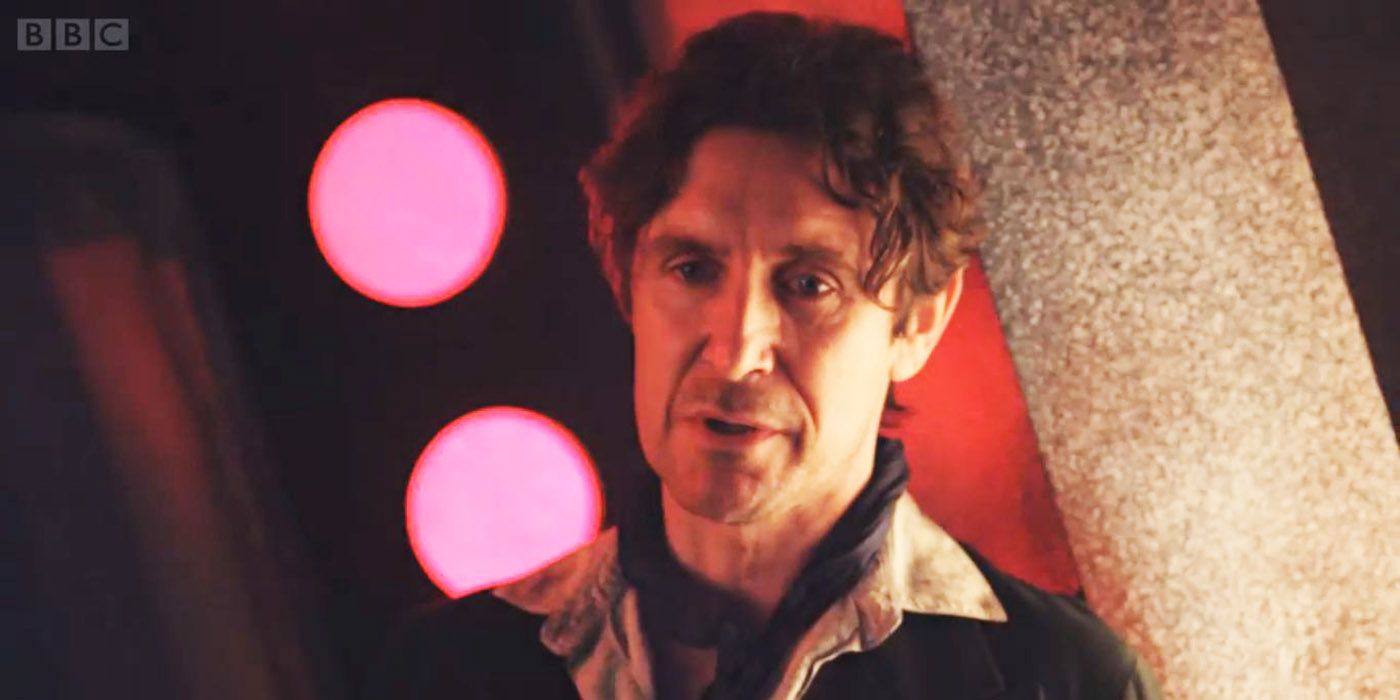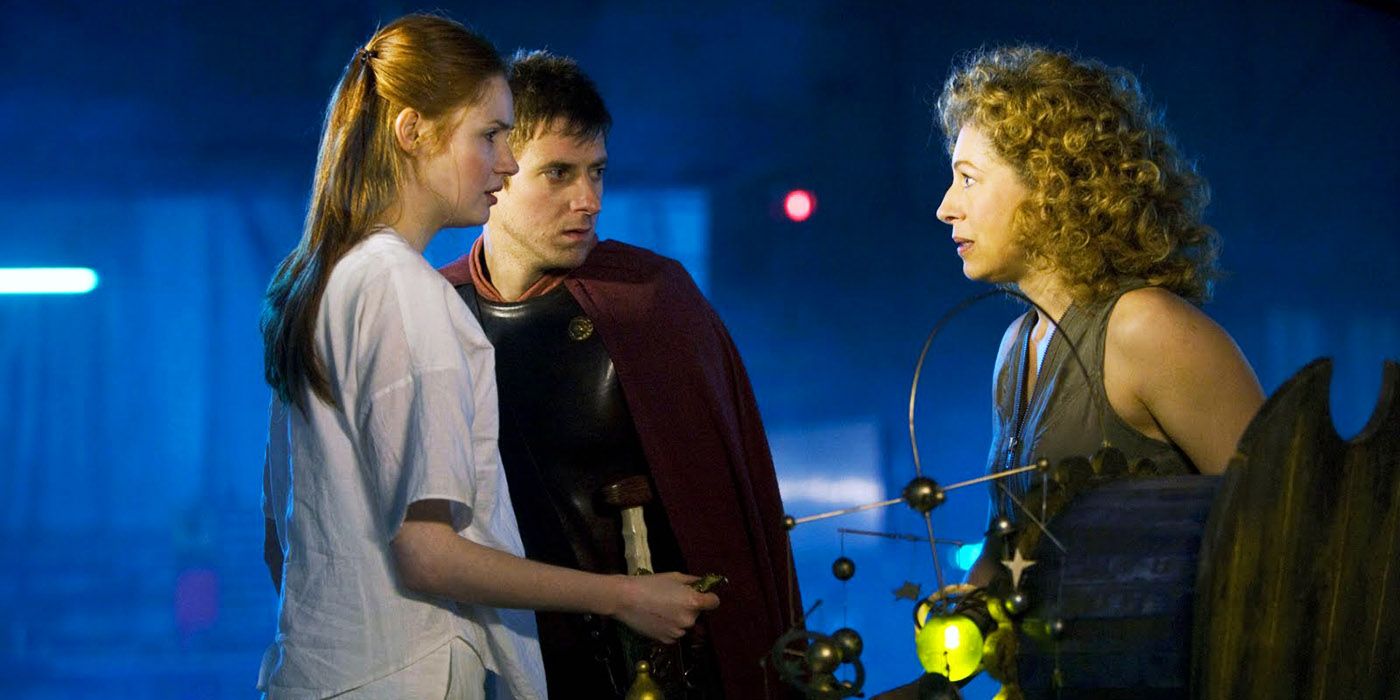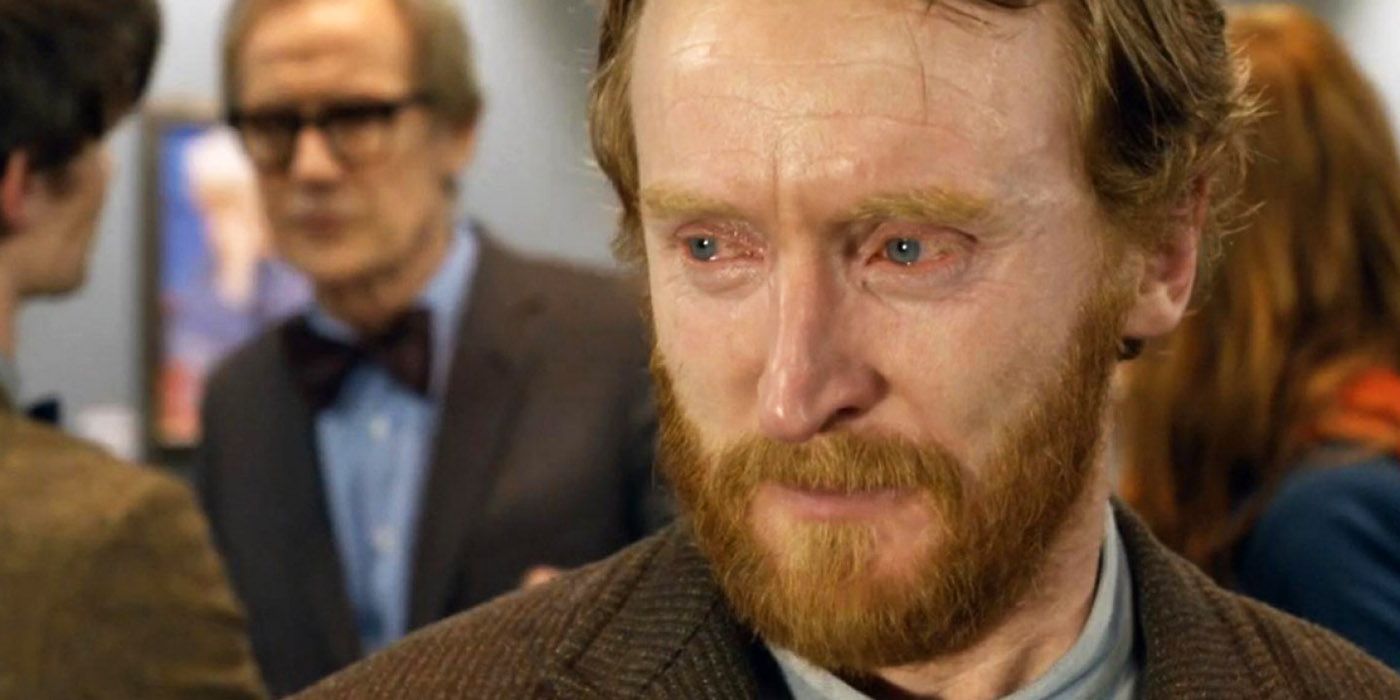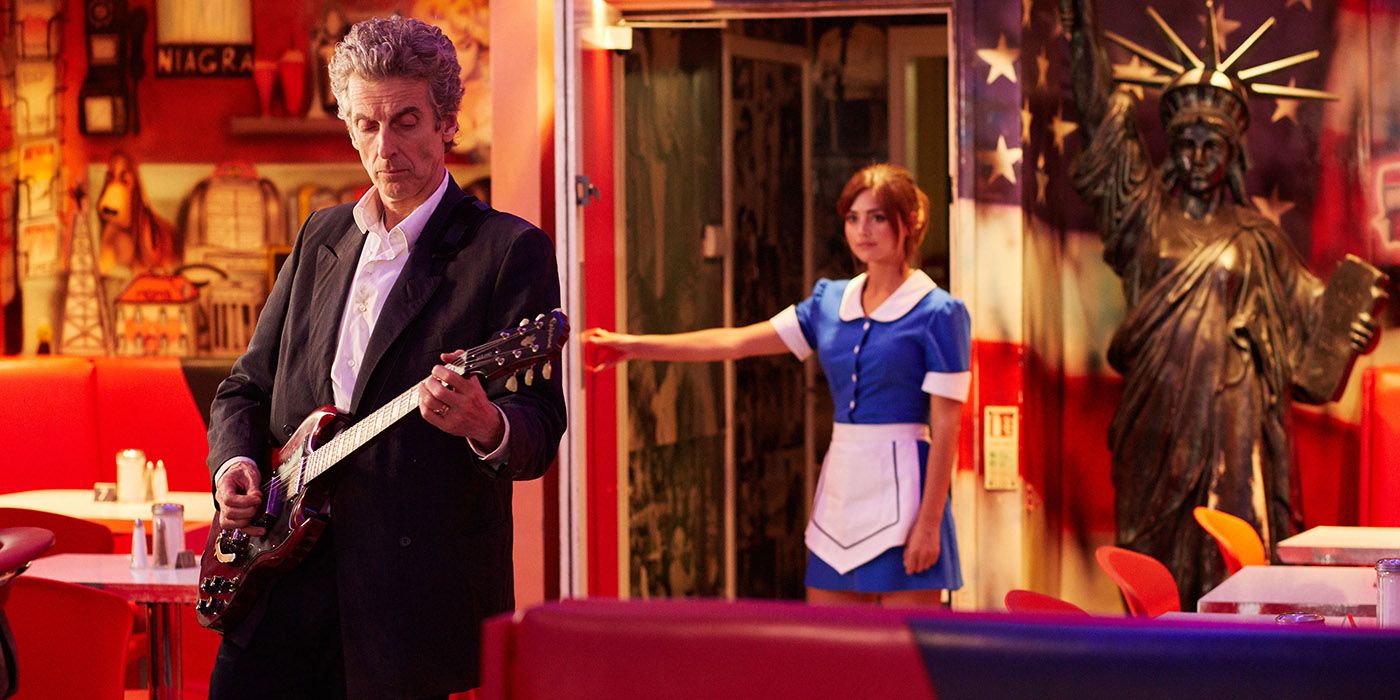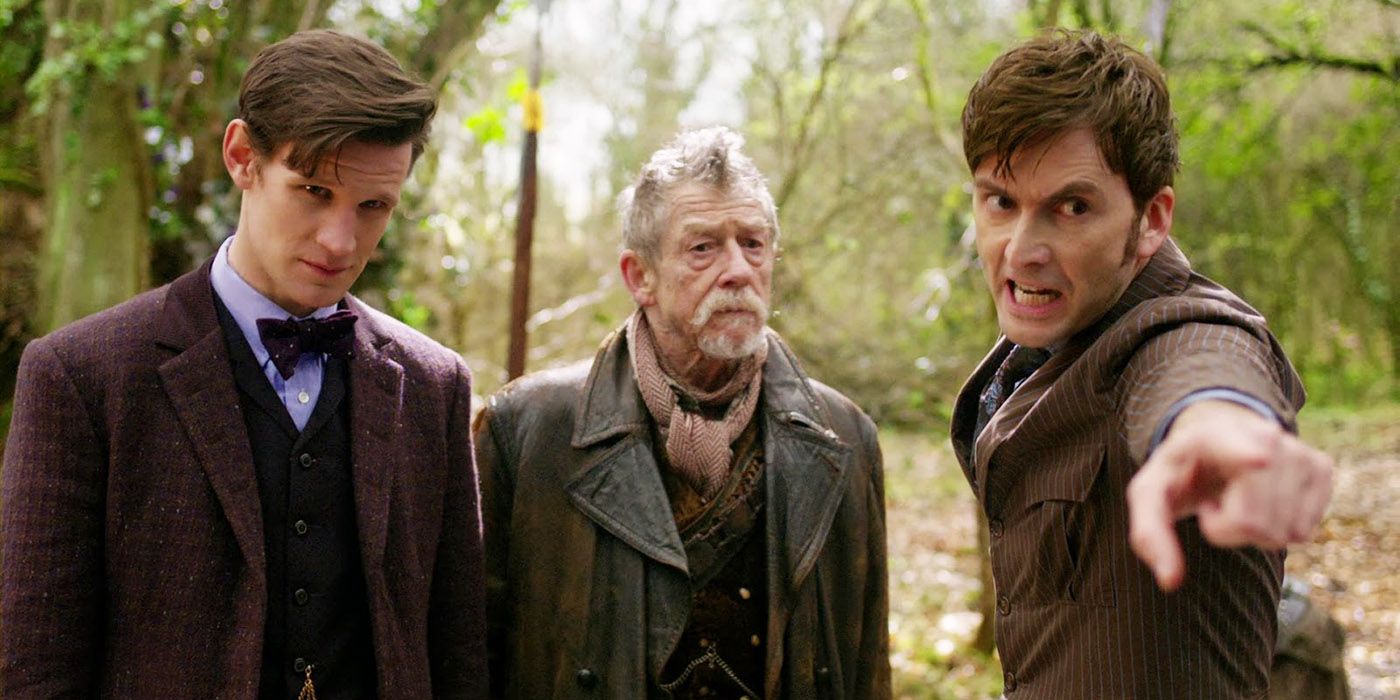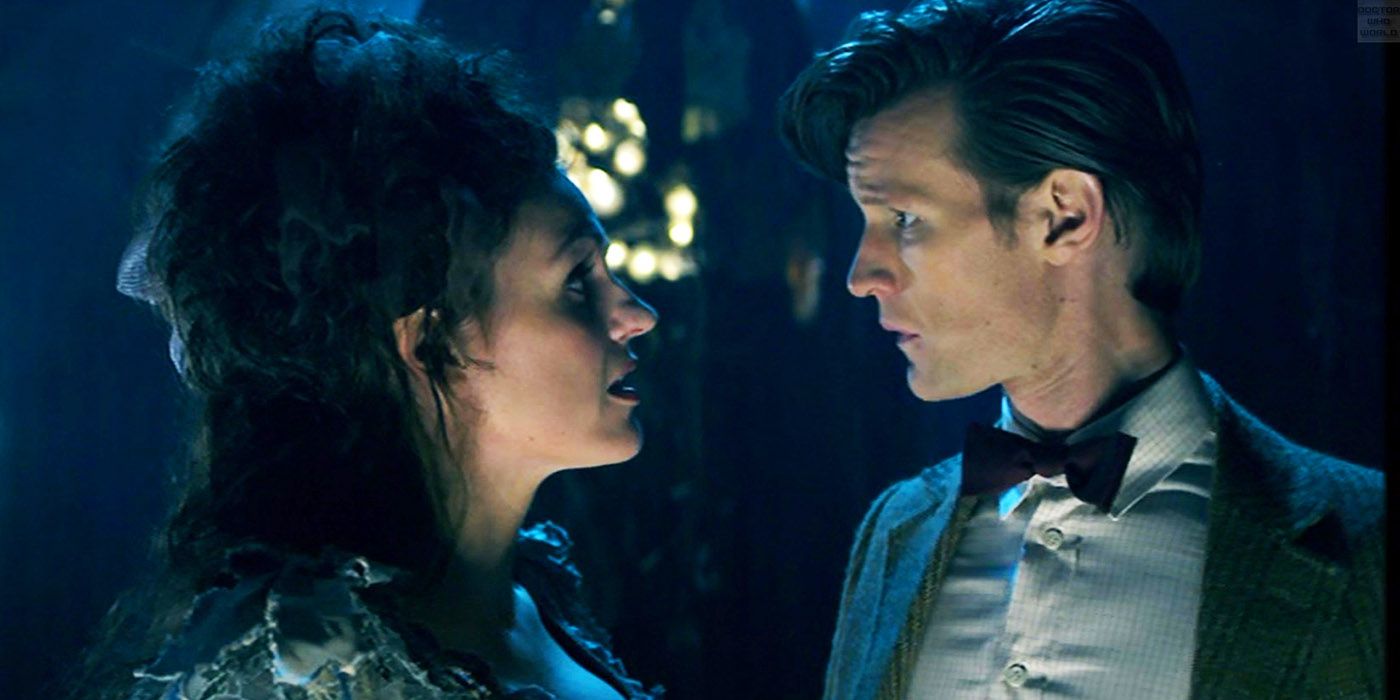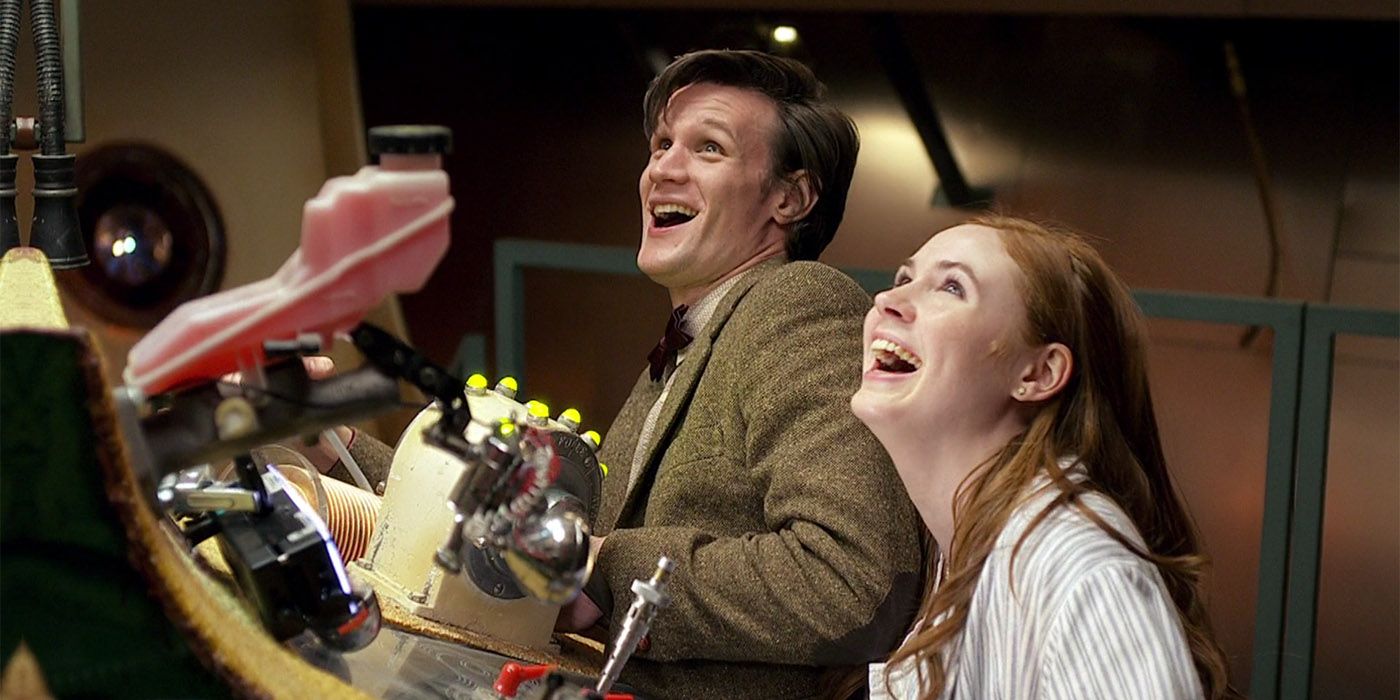Before he became Doctor Who's showrunner, Steven Moffat was a fan-favorite guest writer responsible for early episodes like "Blink," which introduced the Weeping Angels; the two-part "The Empty Child" and "The Doctor Dances," which gave the world Captain Jack Harkness; and the two-part "Silence In the Library" and "Forest of the Dead," which marked the debut of River Song. His scripts are characterized by fast-paced, witty dialogue, masterful twists and turns, and slow-burn mysteries and story arcs that take entire seasons to play out (sometimes more). He also found his perfect muse in the manically energetic Matt Smith, aka the 11th Doctor.
That said, Mr. Moffat is no stranger to criticism. He has a group of very vocal detractors — largely Doctor Who purists who don't like the changes he's made to the mythology. But the Doctor has reached new heights of international fame and success during his regime, and you can't argue with results.
With his tenure as producer and head writer on Doctor Who coming to a close this year, now is the perfect time to take a look back at the finest episodes of the Steven Moffat era (aka, Seasons 5-9).
15. Asylum of the Daleks
By the outset of his third season, Matt Smith had won over skeptical fans, Karen Gillan and Arthur Darvill were confident and comfortable in their roles as Amy and Rory Williams, and Steven Moffat had a firm grip on the helm of his ship. "Asylum of the Daleks" finds the Doctor doing what he does best: saving the day against impossible odds while also sorting out the personal lives of his friends.
It started with a killer hook: the Doctor and his two companions are abducted by the Daleks and taken to the one place in the universe the Daleks themselves are too frightened to venture out to: a creepy retirement home for Daleks that have gone mad. Moffat's stated aim was to "make the Daleks scary again," and he definitely succeeded. Along the way, the Doctor is stunned to find that in his absence, his two best friends have separated and are on the verge of divorce. He may have his work cut out for him, but not to worry. That's when the Doctor's at his finest.
Add in the clever surprise debut of the Doctor's next companion — months earlier than expected — and you've got a thrilling concoction of excitement and emotion that just can't fail.
14. The Angels Take Manhattan
The heartbreaking departure of companions Amy and Rory is given a top-notch production that was largely filmed on location in New York City. We also got to see the Doctor deepen his relationship with River Song following their wedding. And what could be better than a return engagement from the Weeping Angels?
As creator of modern Who's most unforgettable villains, Moffat knows his way around those terrifying Angels. Sure, the Statue of Liberty bit was over-the-top, but all was forgiven when Amy announced that she wouldn't let the Angels take Rory from her despite it having already happened, because you believed in her conviction. The Doctor's mad scramble to do anything he could to keep Amy and Rory's inevitable departure from happening was as shattering as the gasp-worthy moment when they were stolen from him.
"The Angels Take Manhattan" was a fun adventure that went to some unexpectedly dark places, exploring whether or not predetermined history can truly be changed. But Moffat, as ever, ended the hour on a hopeful note with a heartfelt callback to young Amelia Pond.
13. Kill the Moon
Peter Capaldi's first season as the Doctor was probably more beneficial to Jenna Coleman's character than it was to his. The addition of love-of-her-life Danny Pink helped too, but it was Coleman's Clara having to find her footing all over again with a prickly new Doctor that brought out the best in her character.
After spending half the season wondering if this Doctor was still the same Doctor she used to know, her convictions were put to the ultimate test when he brought her to an impossibly difficult, life-or-death decision... and abandoned her (and humanity) to decide for herself. Clara rose to the occasion admirably in Peter Harness' gut-wrenching script, but the experience shook her to her core.
Viewers held their breaths during her blistering monologue at the episode's end. She unloaded the anger and shock and terror she'd felt while trying to make the decision alone that he refused to, and then left him, telling him to shove off and never come back. Rarely has the Doctor/companion relationship felt more visceral or grownup.
12. The Snowmen
With guest turns from Richard Grant as the big bad, Sir Ian McKellan's voice as the first incarnation of the Great Intelligence, and the always-welcome return of the Paternoster Gang — with Strax at his loopy best — "The Snowmen" is the most enjoyable Christmas special to come from Moffat's pen.
Due to some wibbly-wobbly, timey-wimey complications, companion Clara Oswald got no less than three introductions to the show. Each instance was an alternate version of Clara, forming a mystery that lasted the season.
The thing is, a case could be made that the Clara we met during this Christmas special was the most interesting of the lot. She was insatiably curious, and relentless in her optimism, but she balanced the two with an uncommonly level head and a cleverness that rivaled the Doctor's own hyperactive mind. This Clara foreshadowed how the real Clara would one day become the Doctor's equal-to-a-fault, but "Snowmen" Clara caught onto how the Doctor's life works much faster than her modern-day self. She was a superb counterpart to Matt Smith's Doctor, and despite everything that's happened since then, you still can't help wondering what might have happened if she'd become the new companion instead of 21st Century Clara.
11. Dark Water/Death In Heaven
A breathtaking betrayal. An army of Cybermen made up of every dead person on Earth. UNIT. The President of Earth. "Don't cremate me." The return of the Doctor's arch-nemesis. A series of tragic goodbyes.
Moffat's 8th Season arc of Capaldi's Doctor questioning his own morality was a little overwrought, not quite measuring up to the epic standards Moffat set with Matt Smith. But the two-part finale still stands out for its audacity. The story had its moments of levity, but ultimately, it was a darker, more adult drama than viewers were used to, with more than its fair share of tragedy. It even ends on a downer, as both Clara and the Doctor lie to each other about getting their own happy endings. The journey there is filled with can't-look-away scenes, chief among them being Clara's all-or-nothing ultimatum to get Danny back.
Admit it: you saw the Missy/Master twist coming all along. But the reveal still managed to be electrifying, thanks largely to Michelle Gomez' deliciously gonzo performance.
10. The Time of Angels/Flesh and Stone
River Song returns to the Doctor's life for the first time since he met her, fulfilling the promise Moffat made with "Silence in the Library" and "Forest of the Dead" from David Tennant's final season. Strong, assertive, smart, and flirtatious, Alex Kingston played River as the perfect foil to the Doctor in every way.
Combine that with the return of the Weeping Angels — another Moffat invention from Tennant's era — along with an early Matt Smith who's hungry to prove himself and Karen Gillan's Amy confronting the true dangers of space-and-time travel for the first time, and you're in for one heck of a thrill ride. This early two-part outing gave Moffat a chance to stretch his legs and get into some meatier storytelling, and boy did he deliver.
It's stuffed with great scenes, but the most satisfying moment had to be the Doctor's epic showdown against the approaching Angels, when he makes them very aware of just how foolish it was to put him in a trap. Smith was never more fierce, and Moffat was rarely more on fire.
9. Listen
Season 8 of Doctor Who began with a slow, meandering season premiere designed to introduce Peter Capaldi's 12th Doctor. While Capaldi was brilliant, it was hard not to sense a lessened degree of investment from Moffat when compared to Matt Smith's flawless, invigorating intro three years prior.
So fans breathed a sigh of relief when Moffat turned in this beautiful little love letter to the show, a combination of spine-tingling chills and time travel madness. The episode finds the Doctor investigating that unspoken feeling that no one is ever truly alone. What if there was something that's always there, just out of view, always watching? It's a premise that goes to some surprising places — and if you think about it, summarizes quite well Moffat's tendency to create monsters you can't see — including the end of the universe (another favorite locale of Moffat's) and a pivotal, full-circle moment from the Doctor's past, which in the end, the whole episode stems from.
It may take repeat viewings to glean everything there is to get out of "Listen," but it's a rewarding process — even if it never provides concrete answers to the questions it asks. What was under the bed sheets? What knocked on the spaceship doors? (It was probably a kid playing a prank and just the wind, respectively.) But like every good scary story, you still don't know for sure.
8. The Impossible Astronaut/Day of the Moon
Fans were told "Silence will fall" a year earlier, but Moffat didn't even begin to explain what that meant until new villains the Silence made their debut in this monumental two-parter. Highlighted by gorgeous cinematography in the American midwest, "The Impossible Astronaut" and "Day of the Moon" kicked off "the season of River Song" with neck-snapping twists and no small amount of style.
Endlessly entertaining, this two-part story may have tried to do a little too much. You've got the death of a future version of the Doctor, River and the Doctor's flirting reaching delightful new levels, a way-out-of-his-element Richard Nixon, Amy's scary abduction, those creepy new villains that you forget about as soon as you stop looking at them, and the tantalizing mystery of a frightened little girl who's way more than she appears to be. But it works because it's tied up with a killer payoff that shows the Doctor at his best: executing a genius plan that brings all of the story's disparate bits and pieces together like a perfectly assembled jigsaw puzzle.
And who can forget that final scene with the regenerating little girl? That sound you heard was the collective jaw of the world smackin the floor.
7. The Night of the Doctor
This seven-minute prelude to Doctor Who's 50th anniversary special was far from conventional, but it's absolutely deserving of its place on this list. Kicking off with the out-of-left-field return of 8th Doctor Paul McGann, this enthralling mini movie fast-forwards (due to budget concerns, no doubt) through enough story to fill a standard episode.
We're also treated to the return of the Sisterhood of Karn not seen since the old series, led by the terrific Clare Higgins as Ohila, a character who convinces the Doctor of the dire seriousness of the situation in remarkably little time. The purpose of the short is to show the unusual circumstances of how the 8th Doctor regenerated into the long-forgotten War Doctor (John Hurt). But McGann's return was so enjoyable that it launched a passionate fan campaign to have the actor return to the role on a regular basis. (The request was denied.)
There aren't many writers who can accomplish so much in so little screen time, but Moffat managed to throw in several sudden turns and introduced a major new twist to Time Lord regeneration science that could (and should) be picked up again at some point in the future. "Night of the Doctor" was a stunner on every level, and a heartfelt gift from one hardcore Whovian to every other.
6. A Good Man Goes to War
Having learned that his best friend Amy Pond has been abducted and held on a remote asteroid while her pregnancy came to term, the 11th Doctor becomes more dangerous than he's ever been before. Carefully gathering a team of friends — all of whom owe him debts for past deeds — the Doctor's searing, righteously-pissed attack on Demon's Run is one for the record books. You rarely ever see the Doctor angry, in any of his incarnations, and after this episode, it's easy to see why he never lets himself go there.
"A Good Man Goes to War" is, of course (spoiler alert), the pivotal moment in the story of River Song, ending on one of the show's biggest and best reveals of all time. A secret held back for three seasons of Doctor Who was all but unheard of at the time, but this was the whopper that Moffat's time on the show will likely be most remembered for.
The episode also introduced us to Vastra, Jenny, and Strax, as well as a staggering-but-mysterious military force gathered to fight the Doctor. It gave Matt Smith, Karen Gillan, and Arthur Darvill the opportunity to do some of their best work on the show, and there were Headless Monks, people. Headless. Monks.
5. Vincent and the Doctor
Every now and then, Doctor Who goes back in time to have the show's main characters interact with important figures from human history. David Tennant's Doctor met William Shakespeare, Agatha Christie, and Queen Victoria. Matt Smith's first dip into these waters came from a tenderhearted script by Richard Curtis, for a relatively quiet little story about Vincent van Gogh.
First of all, there's the bravura performance by guest star Tony Curran, who gives you so many feels for his mentally ill van Gogh that he is singlehandedly what makes the entire episode work. The plot is about some monster-of-the-week randomly appearing in one of van Gogh's paintings, prompting Amy and the Doctor to go back and visit him to stop the creature. But that part doesn't matter in the slightest.
What matters is the haunting depiction of van Gogh, and the astonishingly touching finale, where the Doctor and Amy show a disbelieving van Gogh just how significant his contributions to art and history are. It might be a little manipulative, but only the coldest of hearts can walk away from this hour without shedding some very real tears.
4. Heaven Sent/Hell Bent
Peter Capaldi finally got the powerhouse showcase for his talents that he deserved in this conclusion to his second season. Fiercely carrying the first half entirely on his own, Capaldi's Doctor is trapped in a Hell of his own making, forced to Groundhog Day the same events over and over for what we later learn is billions of years. It initially seems as though he does this merely to escape his torment, but it turns out, the Doctor was playing an extremely long game to get back his dearly departed Clara.
The second half sent the Doctor to Gallifrey for an extremely satisfying confrontation with corrupt Time Lord president Rassilon. He upended the entire Gallifreyan government, which also turned out to be yet another part of the Doctor's plan to revive Clara. After her sudden death in "Face the Raven," just prior to this two-parter, fans cried foul at a great character getting such a pointless sendoff. But every one of them retracted their complaints after "Hell Bent," when it slowly became clear that her death was a fake-out, and Moffat had something far better in mind for closing out her time with the Doctor, making for one of the show's best departures ever. How many companions can say they got to ride off into the sunset with their very own TARDIS and countless untold adventures yet to come? (Okay, maybe Rose. But still.)
The extremes to which the Doctor was willing to go to save Clara were shocking, as was him wiping his own memories of her, but the delightful way the episode ended was nothing short of beautiful.
3. The Day of the Doctor
For the 50th anniversary special, Moffat knew he had to deliver one that checked off every possible box for hardcore Whovians. But it also needed to be a humdinger of an adventure, and a blockbuster big enough to celebrate half a century of Who.
It did this by finally showing the Time War, the "final war" between the Time Lords and the Daleks that was so devastating, it threatened to wipe out the entire universe. Sometime before the modern revival of Doctor Who, the Doctor brought an end to the Time War by destroying both the Time Lords and the Daleks with a super-weapon — a last resort measure of devastating power. At long last, we got to see how he did it, only there was a twist! He didn't do it — he just thought he did. In a perfectly Doctor Who twist, he saved Gallifrey and all its people.
David Tennant returned as the 10th Doctor to join up with Matt Smith, and the chemistry between them was glorious. There was a crazy stunt involving a dangling TARDIS, the return of UNIT, the introduction of Osgood, a surprise early glimpse of the forthcoming 12th Doctor, along with a feel-good ending that even Moffat's biggest haters couldn't help but love. A surprise cameo near the end from one of the most beloved Doctors of all time perfectly capped things off.
2. The Doctor's Wife
Season 6 may have been the "year of River Song," but this instant classic wasn't about her at all. This ep — which sprang from the mind of beloved author Neil Gaiman — examined the one relationship that's pivotal to the show, yet had never been explored before: the Doctor and his TARDIS.
The Doctor has always had a special relationship with the TARDIS, but no Doctor enjoyed this relationship as much as Matt Smith's, who talked to the blue box frequently and even flirted with it. So Gaiman imagined downloading the TARDIS' matrix (aka, brain) into a human so that Doctor and machine could truly interact for the first time ever. It was a wish-fulfillment fantasy not just for the Doctor, but for fans, too.
Everyone was in top form, but it was guest star Suranne Jones who stole the show as Idris, the woman who becomes the TARDIS. She and the Doctor talked about everything they'd ever wanted to say to each other, and viewers enjoyed some of the best science fiction Doctor Who has ever produced.
1. The 11th Hour
If you're given the job of following up the most celebrated run of Doctor Who ever (hello, Mr. Tennant), you've got not just an unenviable job, but an awful lot to prove. Fortunately for Whovians, Steven Moffat delivered with this magical, immensely satisfying hour — with no small amount of help from all-in new stars Matt Smith and Karen Gillan.
You'll never find a more uniformly perfect episode of Moffat-era Who. Matt Smith's debut as the Doctor was Moffat's debut as showrunner, and watching "The 11th Hour," you got the feeling that the writer/producer had been waiting his whole life to create this hour of television. Moffat set up a madcap scenario where our hero had just 20 minutes to save the world — and without his TARDIS or sonic screwdriver. "The 11th Hour" twinkled and shined with a sense of fairytale whimsy; equal parts laugh-out-loud humor, heartwarming drama, and a genuinely frightening monster. It culminated in one of the Doctor's most badass moments ever, and all of this is juggled so expertly, you'd never know it was most of the team's first time at bat.
Not a single line of dialogue is wasted, every single jot and tic are perfectly timed and delivered. Joyfully executed and brimming with more quotable lines of dialogue per minute than quite possibly any episode ever, "The 11th Hour" without a doubt tops the list as the finest work of Steven Moffat's Doctor Who career.
--
What's your favorite Doctor Who episode from the Moffat era? Let us know in the comments!

